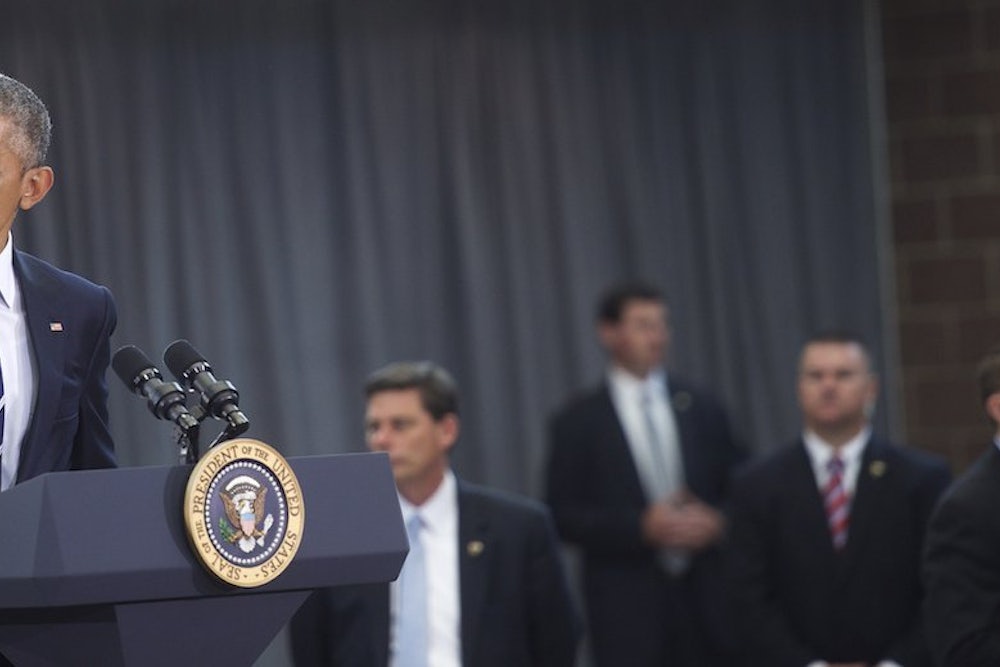President Barack Obama has already pitched action on climate change as a moral obligation, and inaction as a threat to the economy. On Wednesday, he went a step further, arguing again that climate change poses a danger to national security. “Climate change poses a threat to the readiness of our forces," Obama told the graduating class at the U.S. Coast Guard Academy on Wednesday:
Many of our military installations are on the coast, including, of course, our Coast Guard stations. Around Norfolk, high tides and storms increasingly flood parts of our Navy base and an air base. In Alaska, thawing permafrost is damaging military facilities. Out West, deeper droughts and longer wildfires could threaten training areas our troops depend on.
The timing, however, is a problem. Obama's speech comes ten days after his administration effectively reopened the Arctic—which contains an estimated 20 percent of the world's untapped oil and gas reserves—to drilling. It's hypocritical, especially since his administration defends the decision as a national security matter, as well. The Arctic contains enough recoverable oil and gas to contribute nearly 16 billion metric tons of carbon pollution to the atmosphere, which is equivalent to more than 13 years of U.S. transportation sector emissions. And climate activists otherwise grateful for Obama's second-term agenda are furious, naturally.
While Obama sees climate change as a security threat, he also sees domestic energy production—including expanded oil drilling on U.S. lands and waters—as essential to American security. "The Arctic region’s energy resources factor into a core component of our national security strategy: energy security,” says a 2013 White House Arctic strategy report.
Obama explained Arctic drilling is a matter of practicality and protecting America's economic interests, even though he sees it necessary to transition away from coal and oil. “In the meantime, we are going to continue to be using fossil fuels," he said in a press conference. "I would rather us—with all the safeguards and standards that we have—be producing our oil and gas, rather than importing it, which is bad for our people, but is also potentially purchased from places that have much lower environmental standards than we do.” As the White House tells it, American companies producing more oil in the Arctic is the country's best option despite the risk of environmental disaster (like the 2010 Deepwater Horizon spill).
Does this mean the administration views climate change as a lesser priority than energy independence? If so, he has more in common with Republican presidential candidates than one would expect. Hillary Clinton may choose to discuss climate change as a security issue, as well—which would be a smart move—but it would mean having to wrestle with this contradiction.
